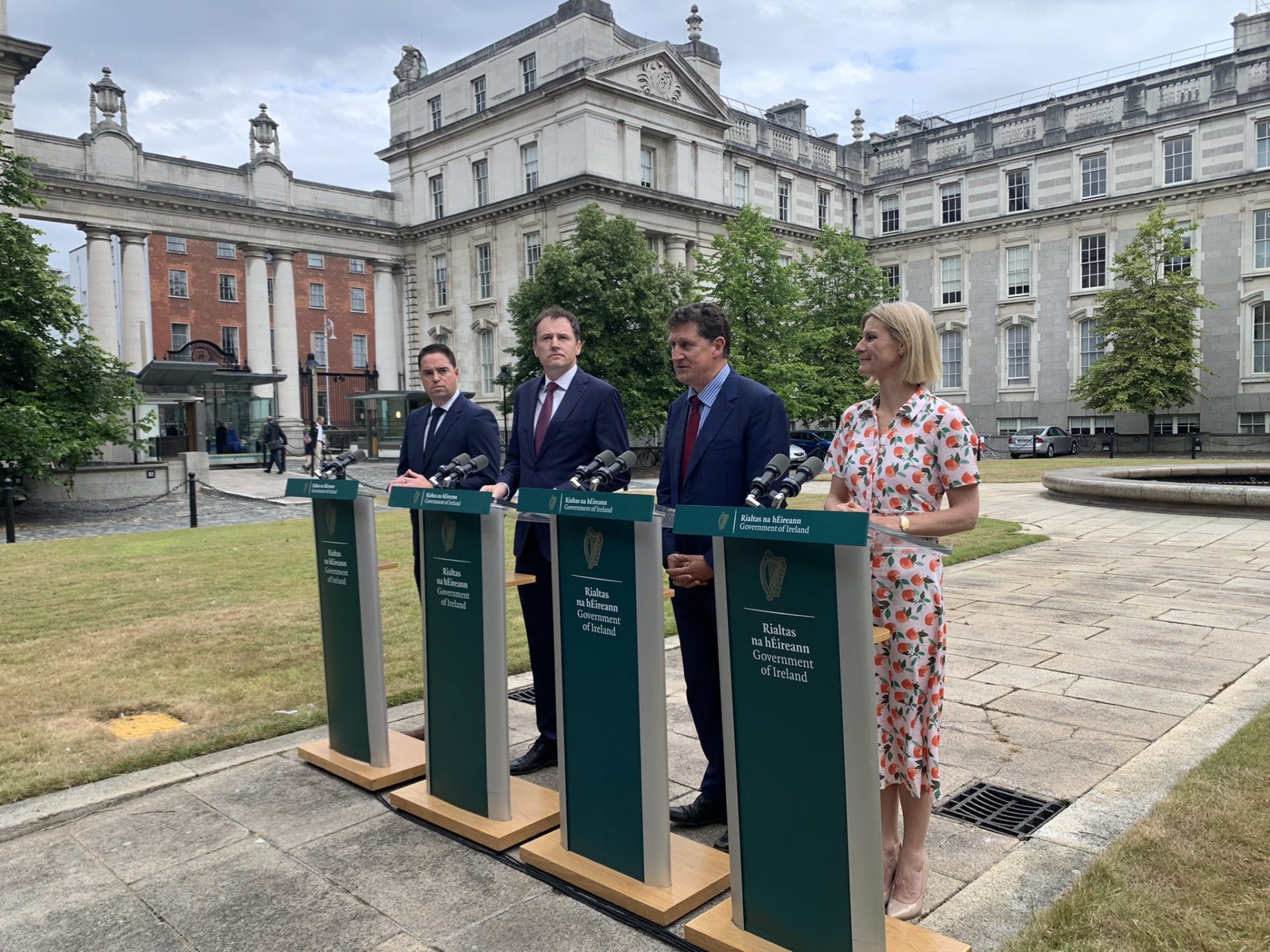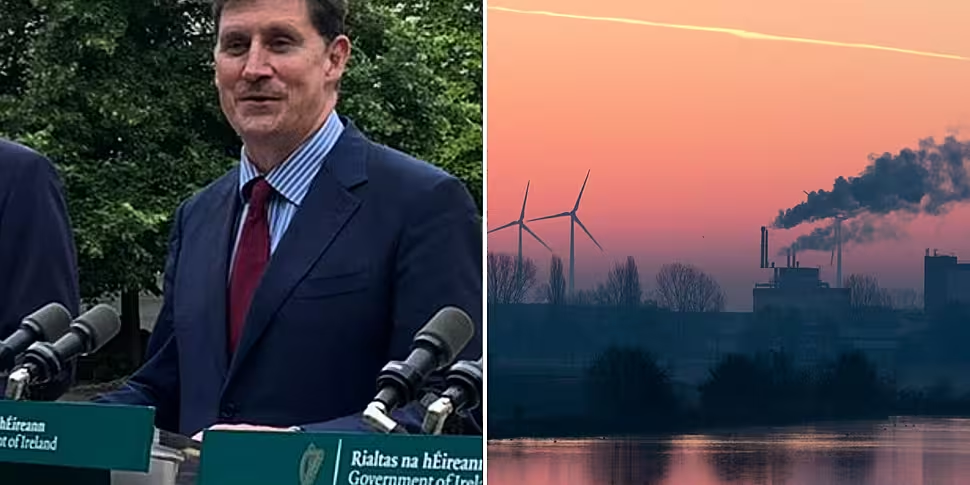The Government has agreed a pathway to cut economy-wide emissions by 51% by 2030.
This includes a 25% reduction in the agricultural sector.
The Government says the changes for agriculture will be voluntary, and allow farmers to play their part.
It says there will be "generous financial incentives" in return, with an additional financial package in Budget 2023.
The ceilings for emissions set maximum limits on greenhouse gases for each sector of the economy to the end of the decade.
They are:
- Electricity: 75% From 10.5 MtCO2eq (2018) to 3 MtCO2eq (2030)
- Transport: 50% From 12 MtCO2eq (2018) to 6 MtCO2eq (2030)
- Buildings (Commercial and Public) 45% From 2 MtCO2eq (2018) to 1 MtCO2eq (2030)
- Buildings (Residential) 40% From 7 MtCO2eq (2018) to 4 MtCO2eq (2030)
- Industry: 35% From 7 MtCO2eq (2018) to 4 MtCO2eq (2030)
- Agriculture: 25% From 23 MtCO2eq (2018) to 17.25 MtCO2eq (2030)
- Other*: 50% From 2 MtCO2eq (2018) to 1 MtCO2eq (2030)
* = F-gases, Petroleum Refining and Waste
Ranges of reductions will be updated annually to "ensure alignment with our legally-binding economy-wide Carbon Budgets and Sectoral Emissions Ceilings", the Government says.
Environment Minister Eamon Ryan says more resources will be given to solar power and off-shore wind.
"The targets that have been set today are going to be challenging for all sectors but they are also fair, appropriate and, importantly, based on what is achievable.
"We have also agreed additional resources and commitments to scale up and speed up our progress on solar, off-shore wind, anaerobic digestion for nature and agro-forestry.
"I have every faith that we will, together, reduce our overall economy-wide carbon emissions, year by year."

Tánaiste Leo Varadkar says this will benefit the economy.
"We will provide advice and expertise, grants and loans to reduce energy use, increase the use of electricity and, in time, hydrogen, carbon capture and storage and other new technologies.
"We will also avail of the many business and employment opportunities that arise from climate action by becoming a producer and exporter of clean, secure and cheap renewable energy and fertilisers, a major retrofitting programme and a leader in new technologies like synthetic aviation fuels, autonomous vehicles, electric aircraft and robotics."
And he acknowledges that the agricultural agreement "has been the most contentious".
"It’s a 25% reduction against a society-wide target of 51%. Farmers will play their part.
"They are up for the challenge and we will help them every step of the way.
"Sustainable, efficient, Irish food production is essential. In the future, the world will need more food not less."
While Agriculture Minister Charlie McConalogue says the target is achievable.
"This target reflects a very challenging but achievable ambition for the sector.
"The protection and enhancement of our sustainable food production system, while ensuring that agriculture plays its part in climate change mitigation, has been a priority for this Government.
"I am confident that farmers will embrace this challenge and, as Minister, I will stand full square behind our farmers on this journey to support them at every step."
Prior to agreeing the sectoral targets, the 2021 Climate Action Plan 2021 set indicative ranges for each sector.










